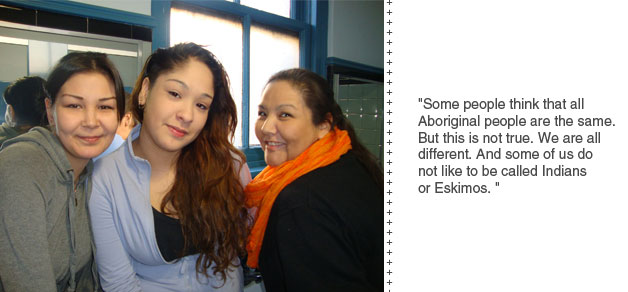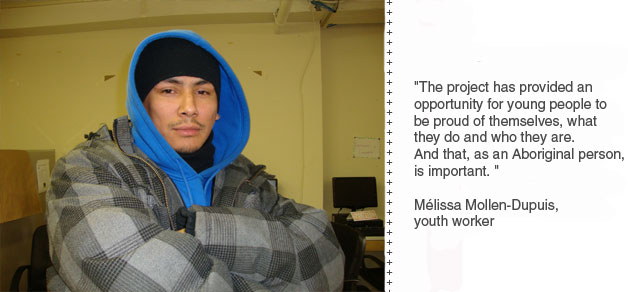Annie Pettigrew, Education Specialist, Equitas Do you like being called “An Indian”? It is with this difficult question that the Innu youth-worker Mélissa Mollen-Dupuis started an activity on human rights with a group of 15 youths who frequent Ka Mamukanit, a socio-professional integration organization for Aboriginal youth of Montreal. This Cultural Connections activity comes from Equitas’ Speaking Rights toolkit and allowed the youth to address the issues of identity and culture. During the activity, the youths mentioned that there are many ways to live their Aboriginal identity.  Following the activity, the youth at Ka Mamukanit decided to use song, humour and poetry to talk about their every-day experiences and to fight prejudice. After listing stereotypes traditionally associated with Canada’s Aboriginal peoples, they identified some key messages they would like to communicate to those who judge the Aboriginal reality without really knowing it. Then, they created short video clips to say loud and clear that: “Most Aboriginal people do not live in tepees and wigwams” that “We are not savages because some of us eat raw meat. “or,” We are educated … and we love to laugh and have fun!” This video project was an opportunity to discuss sensitive issues, but also to work together to do something concrete, constructive and creative in the fight against prejudice.
Following the activity, the youth at Ka Mamukanit decided to use song, humour and poetry to talk about their every-day experiences and to fight prejudice. After listing stereotypes traditionally associated with Canada’s Aboriginal peoples, they identified some key messages they would like to communicate to those who judge the Aboriginal reality without really knowing it. Then, they created short video clips to say loud and clear that: “Most Aboriginal people do not live in tepees and wigwams” that “We are not savages because some of us eat raw meat. “or,” We are educated … and we love to laugh and have fun!” This video project was an opportunity to discuss sensitive issues, but also to work together to do something concrete, constructive and creative in the fight against prejudice.  The video project is one of many being carried out by youth organizations participating in Equitas’ Speaking Rights program. It will be officially launched at the end of March, during the welcome party for new participants in the Ka Mamukanit program. In addition, it will be presented as part of the Speaking Rights youth event to be held in May which will bring together over 200 youths and program partners in Montreal. Annie Pettigrew Education specialist, Equitas
The video project is one of many being carried out by youth organizations participating in Equitas’ Speaking Rights program. It will be officially launched at the end of March, during the welcome party for new participants in the Ka Mamukanit program. In addition, it will be presented as part of the Speaking Rights youth event to be held in May which will bring together over 200 youths and program partners in Montreal. Annie Pettigrew Education specialist, Equitas